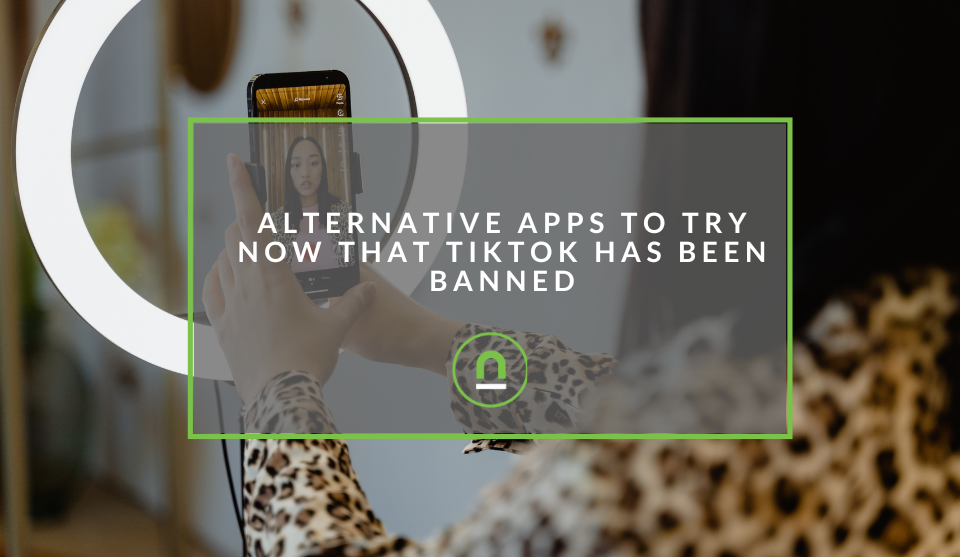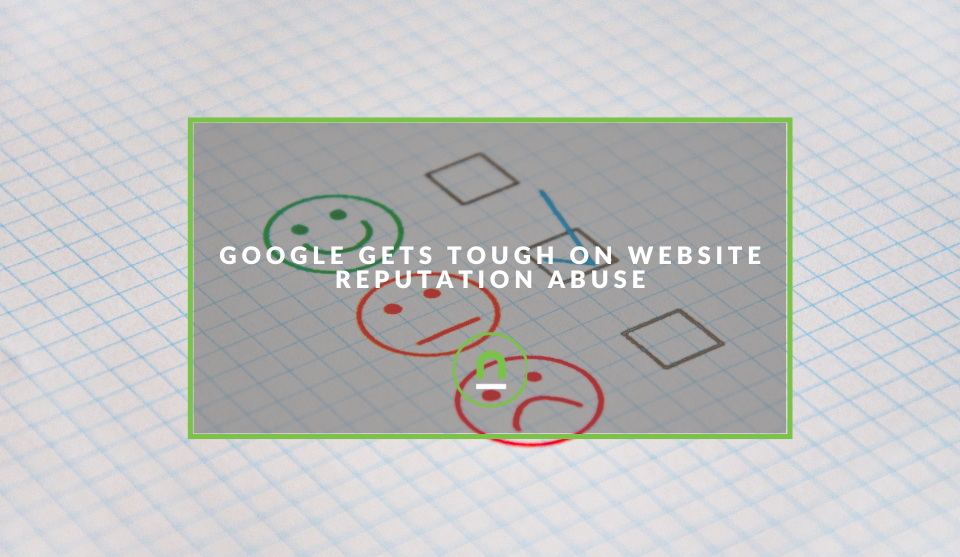Recent posts

Industry Experts
Permission-Based Marketing: Why Opt-Ins Are Non-Negotiable
07 February 2025

Constructive Criticism
4 Benefits of Using Epoxy Glue for Your DIY Projects
05 February 2025

nichemarket Advice
Alternative Apps To Try Now That TikTok Has Been Banned
19 January 2025

Industry Experts
Top Trends in Digital Signage for South African SMEs
15 January 2025
Popular posts
Extravaganza
Trending Music Hashtags To Get Your Posts Noticed
24 August 2018
Geek Chic
How To Fix iPhone/iPad Only Charging In Certain Positions
05 July 2020
Extravaganza
Trending Wedding Hashtags To Get Your Posts Noticed
18 September 2018
Money Talks
How To Find Coupons & Vouchers Online In South Africa
28 March 2019
What Is Site Reputation Abuse?
08 May 2024 | 0 comments | Posted by Che Kohler in nichemarket Advice
If you've spent even 15 minutes Googling these days, you might have noticed a steep decline in the quality of search results and the hilarious memes that have emerged as Google SERPs turn into the seventh circle of spam hell.
When Google's fueled SGE isn't telling you to drink your urine to pass kidney stones, SERPs are actively leading you to many spam results. The modern Google research result isn't a library of curated content anymore; it's either a paid ad spot or black hat SEO on Reddit, Google Groups, LinkedIn Pulse, or Medium spamming AI-generated articles.
If that's not enough to kill SERPs, these spammers have not begun piggybacking on popular media sites that have found new ways of selling their domain reputations for a quick buck.
I keep up with the drama for my work and the large data sets Google provides, but I wouldn't be a regular consumer of the product if I had another choice; search engine marketers are forced to play in the biggest pond for now.
As an SEO myself, I've long since ditched Google Search for my personal searches. Lately, Qwant has been providing me with a far better experience, and I am willing to change search engines the instant that is no longer the case.
But for the average normie, who doesn't know there are options outside Google, the default behaviour is so strong they will continue to use Google despite the deterioration of the product.
AI reduced the barriers to spam
Since generative AI became part of the everyday user's toolkit, we've seen more spam content than ever before; if people are not domain hijacking and filling it with content, purchasing dead domains and re-populating them with AI content, then they're spinning up brand new websites and important AI-written content from competitor sites, its been crazy.
Google was never ready for this influx of new content and websites, and it shows in search results that it continues to search for hearty doses of spam. SEO Twitter has no shortage of examples of spammy content indexed for some rather difficult keywords; it's honestly mind-blowing.
Keywords that you would need months of work on, on-page and off-page, are being won by some guy, along with his chat-GPT API. As a result, the Algo updates have been pushed out at a frantic pace.
During March and April 2024, Google removed thousands of AI-written content sites from its indexes, and now we're faced with a new threat: spam articles on high-authority websites.
What is site reputation abuse?
Imagine a trusted educational website or household brand suddenly starting to publish low-quality content, like spammy product reviews you'd find on a shady affiliate site.
That's essentially site reputation abuse.
It occurs when a website owner allows third-party content to be published without proper oversight. This content is often created solely to manipulate search rankings rather than provide users with genuine value.
These AI-spun pieces redirect traffic from a high-authority domain to an affiliate or eCommerce site where the author will earn a commission.
Since ad revenue for media sites has taken a massive knock in recent years and very few users are willing to subscribe to paid memberships, websites are looking for alternative income streams. These websites want the revenue, and these spammers are willing to pay for it, so they meet each other halfway.
Instead of putting up content where anyone can see it, these sites don't want their traditional visitors and customers to engage with it, so they'll set up custom subfolders or subdomains like
- nichemarket.co.za/blog/spam
- spam.nichamarket.co.za
And allow third parties to publish on these site sections, leaving them open for search engines to index but not to find through their internal site search and site navigation.
US coupon SERPs are starting to change: many news websites are out of the top 10 (screenshot: 4th of May vs now)@rustybrick @lilyraynyc @glenngabe #sitereputationabuse pic.twitter.com/dLKnpfg8Fg
— Laura Chiocciora (@LauraChiocciora) May 6, 2024
It's essentially a little walled garden where 3rd parties can "rent" space and spam to their hearts' content, trying to use the domain to solicit traffic from search.
The theory is it is much easier to get traffic for your crappy AI content if it's published on Reuters than if you bought Retuters-news.com and tried to publish it on this brand-new domain.
Google also won't likely burn you because Reuters is a legitimate website, or so spammers thought until now.
Why is Google taking action?
Google wants search results to be a reliable source of information. Site reputation abuse undermines that trust by polluting search results with irrelevant or low-quality content. By cracking down on this practice, Google aims to ensure users find the most helpful and trustworthy websites at the top of their search queries.
On 06 May 2024, Google started rolling out its site reputation abuse policy by de-ranking or de-indexing portions of websites from the Google Search index.
This update feels more like a manual intervention than an algorithm update since it targeted very specific sites such as CNN, USA Today, Fortune, and LA Times, which are seeing their coupon directories no longer ranking for coupon-related keyword phrases.
In a repsonse, other sites have started to wave the white flag, like Forbes, Wall Street Journal and others who manually blocked these directories from Google's spiders before enforcement of this new policy began.
What does this mean for you?
If you own a website, here's what you need to be aware of:
- Review Your Third-Party Content: Take a close look at any content published by third parties on your site. Is it relevant to your niche and audience? Does it provide genuine value, or is it just stuffed with keywords?
- Maintain Editorial Control: Ensure you have editorial control over all content published on your website, even if it's from third parties. Establish clear guidelines for guest posts or sponsored content.
- Stay in your lane: If you publish third-party content, it should better fit your site's overall mission and have actual value for users. It would be best if you were editorially involved in what's going on, clearly state that these are guest contributors, and even set up profiles for these users.
- Focus on High-Quality Content: The best way to avoid penalties from this update is to create high-quality, informative content that genuinely helps your audience.
- Don't Be a Billboard: Under normal circumstances, advertising or sponsored content is fine. But it shouldn't look like your core purpose OR exist entirely to manipulate rankings. Also, consider adding UGC and sponsored tags on your posts and links within the content. If publishers request that you don't, tell them to find another site to work with; don't risk your entire site's reputation for a $100 guest post.
- Don't rent out your domain: Don't make it bogus sections on your site, launching free for all subdomains or subfolders, and try to sell them to bloggers for a fee, where they can publish any amount of spam they like.
Staying on Google's good side as a site owner
If you read Google's documentation and press releases, you will see that they continue to use the same tired talking points, which are, to an extent, true.
By prioritising user experience and creating valuable content, you can ensure your website remains in Google's good graces over the long run, but there is no guarantee your valiant efforts will be rewarded in the near term.
Spammers, Grey and black hat SEOs will continue to flood search results with content to try and capture traffic before they are de-indexed, and they'll find ways around every Google update.
Google's ultimate goal is to deliver its users the best possible search experience, so if you're making a fool of them, they'll eventually come after you.
Growth hackers might want to sell you on these tactics now, but consider the sustainability of the efforts and the lasting reputational damage they could cause your brand.
This is what these large domains are in; for now, they F'd around, and now they're finding out.
While it might not be glamorous or get you the immediate results you crave, you're still better off focusing on quality over quantity, ensuring your website thrives on all search engines, not only Google.
If you're creating the best user experience for a specific topic, it will get traction on search, social, and dark social, so don't be too focused on what Google is kicking off when SERP volatility is at an all-time high.
As a search consumer
While Google dominates the search engine market, there is no reason to be tied to the sinking ship. As a search consumer, your switching costs are zero. You can type in a different domain and search from any one of several search providers.
- Bing
- DuckDuckGo
- Ecosia
- Startpage
- Qwant
- Brave Search
To name a few.
You really have no excuse other than being lazy or a slave to your habits, and I know it can be hard to kick a habit, but try testing out the waters before you make the switch.
Consider opening two tabs, conducting the same search on different engines, and seeing the results you get. If you like what you see on another search engine, it might end up becoming your default, and you can start doing your part to de-google your life and erode some of Google's market share.
Different search engines can also expose you to a broader range of viewpoints and information sources, potentially reducing the influence of Google's algorithms on your search results. This might improve your Internet experience by expanding your realm of discovery outside Google's gated SERPs.
The Internet wasn't made for one company to tell you what to look at, where to go, or what to think. Walk your own path and use the Internet as it was intended: as a tool for discovery.
Contact us
If you would like us to improve your link building for your site or want to know more about digital marketing for your business, then don’t be shy. We’re happy to assist. Simply contact us
Are you looking to promote your business?
Business owners can create their free business listing on nichemarket. The more information you provide about your business, the easier it will be for your customers to find you online. Registering with nichemarket is easy; all you will need to do is head over to our sign-up form and follow the instructions.
If you require a more detailed guide on how to create your profile or your listing, then we highly recommend you check out the following articles.
Recommended reading
If you enjoyed this post and have a little extra time to dive deeper down the rabbit hole, why not check out the following posts on link building.
- How To Use The Forgotten Art of Dead Link Building To Boost SEO
- How To Use April Fools As A Link-Building Tool
- How To Build Links From Journalists
- The Pain Of Link Building In Memes
- How To Use Broken Links To Earn New Links
- How To Start Reclaiming Lost Backlinks
- How To Build Links With Brand Mentions
- How To Build Local Links To Your Website
You might also like
What Are End of Funnel Keywords?
07 January 2025
Posted by Che Kohler in nichemarket Advice
End-of-funnel keywords are search terms that indicate a user is close to making a purchase, and every website wants to rank for these terms, but is i...
Read moreGrow Your Profile With Cheap Instagram Followers
14 January 2025
Posted by Ashley Ingram in Industry Experts
How can you start to inflate the numbers on your Instagram account by purchasing followers? What are the pros and cons of this strategy and what to l...
Read more{{comment.sUserName}}
{{comment.iDayLastEdit}} day ago
{{comment.iDayLastEdit}} days ago
 {{blogcategory.sCategoryName}}
{{blogcategory.sCategoryName}}


